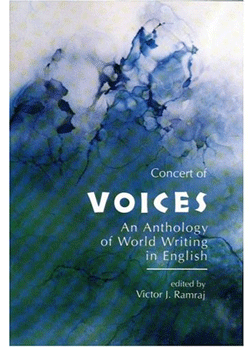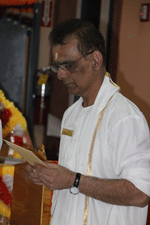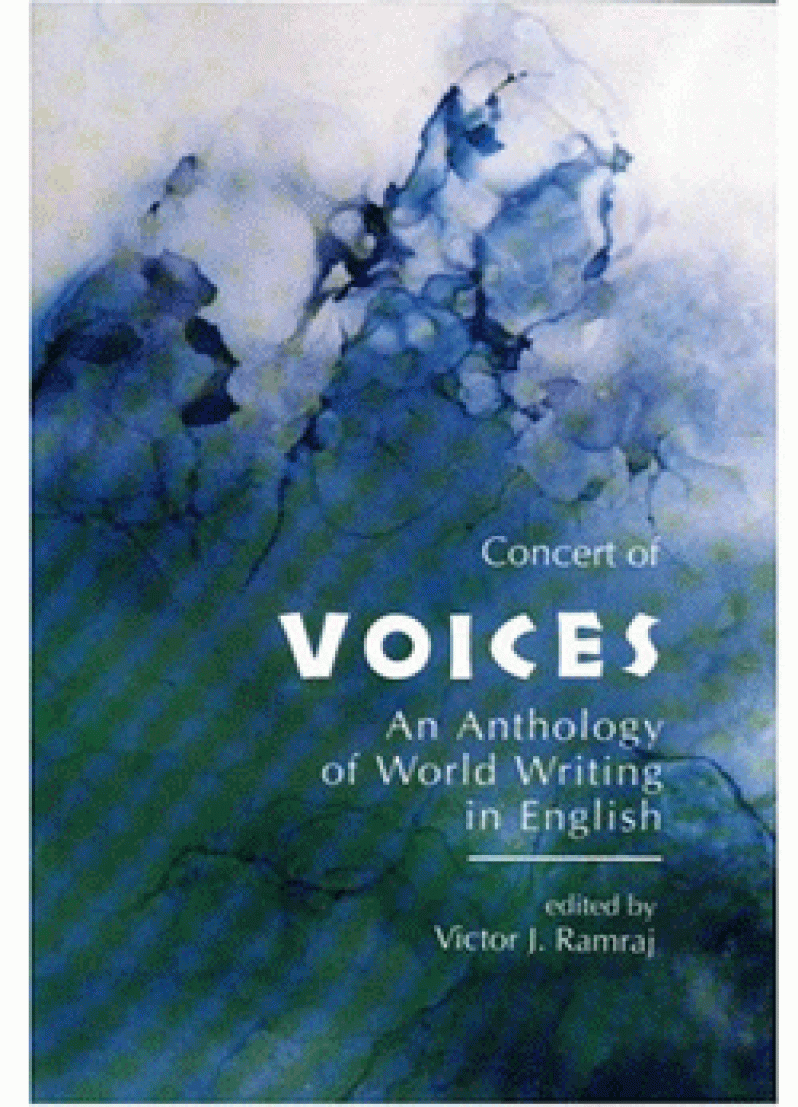‘JOHNSON’S Dictionary’ is Dabydeen’s seventh novel and it is not easy to categorise, mainly because he is never overwhelmingly satisfied with his previous effort (s), always looking forward to his next book, his next seven books, hoping to break new ground with the next and the next and the next.
 Dabydeen’s seventh novel is not easy to categorise, because it has covered a lot of ground in its experimentation of how history can be reclaimed, repackaged and disseminated to larger and diverse consumer groups.
Dabydeen’s seventh novel is not easy to categorise, because it has covered a lot of ground in its experimentation of how history can be reclaimed, repackaged and disseminated to larger and diverse consumer groups.
In this novel, Dabydeen has not portrayed history in a linear way, but in a disjunctive fashion. The four parts of the novel appear disjointed, but they are connected thematically.
This novel is not easy to categorise in its experimentation of resurrection/reincarnation. And it is by design that the book opens with the reincarnation of Manu, ‘Originator of Life’ (Page 11), who, in Hindu true tradition is called the ‘Progenitor of Mankind’. And it is also by design that this seventh novel surfaces in the period ruled by the seventh Manu.
Regarding his experimentation, Dabydeen declares that he tries to be ‘extravagant’ instead of plain in his writing. And in ‘Johnson’s Dictionary’, he has done just that: Been extravagant, daring the reader to stay with him as he offers ample rewards along the way.
Most of the rewards come by way of a writer who is an intriguing storyteller, fascinated by language and the delivery thereof.
Further, the difficulty in categorising this novel stems from the act or fact that its author has revisited many familiar subjects, attending to them this time from daring viewpoints, but moreso because its author has tackled tabooed subjects with refreshing and consummate ease.
This novel is not easy to categorise, and this difficulty is intentional on the writer’s part; a writer whose first novel is semiautobiographical, and falls in the ‘easy’ category of social realism, and now trespassing in the realm of magic realism not unlike his literary ancestors. Dabydeen is always experimenting with his writing and his readership, particularly his readership, because it is this group that could make or break a book or writer. And Dabydeen is on record as saying that a writer must always take the reader to the brink of the precipice…Also on record is Dabydeen’s declaration that a writer ought to incorporate beauty and redemption in his or her work. So we find Dabydeen weaving beauty and redemption among the gloomy, gruesome subjects he examines.
Dabydeen is always experimenting with his writing and his readership, particularly his readership, because it is this group that could make or break a book or writer. And Dabydeen is on record as saying that a writer must always take the reader to the brink of the precipice…Also on record is Dabydeen’s declaration that a writer ought to incorporate beauty and redemption in his or her work. So we find Dabydeen weaving beauty and redemption among the gloomy, gruesome subjects he examines.
Despite the difficulty in defining this novel, it can be said that ‘Johnson’s Dictionary’ is a literary novel. The novel goes to the heart of the English language.
‘Johnson’s Dictionary’, the novel, harps back to, and on matters relating to ‘Johnson’s Dictionary’, composed by Samuel Johnson and published in 1755.
The dictionary, by Johnson, is viewed as the most influential of dictionaries. The correct title of ‘Johnson’s Dictionary’ is ‘A Dictionary of the English Language’.
At this point, it is useful to know about, or to have a refresher on, Samuel Johnson and his servant, for that 18th Century story is woven into this contemporary novel of the 21st Century.
Francis Barber (ca. 1735–1801) was the Jamaican manservant of Samuel Johnson in London from 1752 until Johnson’s death in 1784. Johnson made him his residual heir…Barber was also left Johnson’s books and papers, and a gold watch. In later years he had acted as Johnson’s assistant in revising his famous Dictionary and other works. (Wikipedia)
The novel, ‘Johnson’s Dictionary’, is set in 18th Century London and Demerara, British Guiana, wherein characters from art and other sources come alive as the author rewrites their story.
Hogarth himself turns up as a drunkard official artist in Demerara, from whom the slave Cato steals his skills and discovers a way of remaking his world. The transforming power of words is what enlightens Francis when his… master gifts him a copy of “Johnson’s Dictionary”…Dabydeen’s novel revels in the connections of Empire, Art, Literature and human desire in ways that are comic, salutary and redemptive. (Book’s blurb)
As mentioned before, the novel, ‘Johnson’s Dictionary’, is a literary one, and a point of departure for me is the following: “Words are more delicious than food.”
In this novel, Dabydeen’s experiment in the use of the language has accomplished what many scholars find improbable to do: Review dictionaries.
Dabydeen’s other novels include ‘The Intended’, ‘Disappearance’, ‘The Counting House’, ‘A Harlot’s Progress’, and ‘Our Lady of Demerera’.
His extensive corpus of writing includes three collections of poetry, and numerous academic books. Dabydeen also has to his credit a wall-full of awards including the Commonwealth Poetry Prize, The Raja Rao Literary Prize (of India), The Anthony Sabga Caribbean Award for Excellence for Arts and Letters, and ‘The Guyana Prize for Literature (on three occasions).
He was also shortlisted for the IMPAC Dublin Literary Prize 1997, and the James Tait Black Memorial Prize in 1999. And crowning those awards are at least three books on the art of David Dabydeen. (To respond to this author, either call him on (592) 226-0065 or send him an email: oraltradition2002@yahoo.com)




.jpg)










